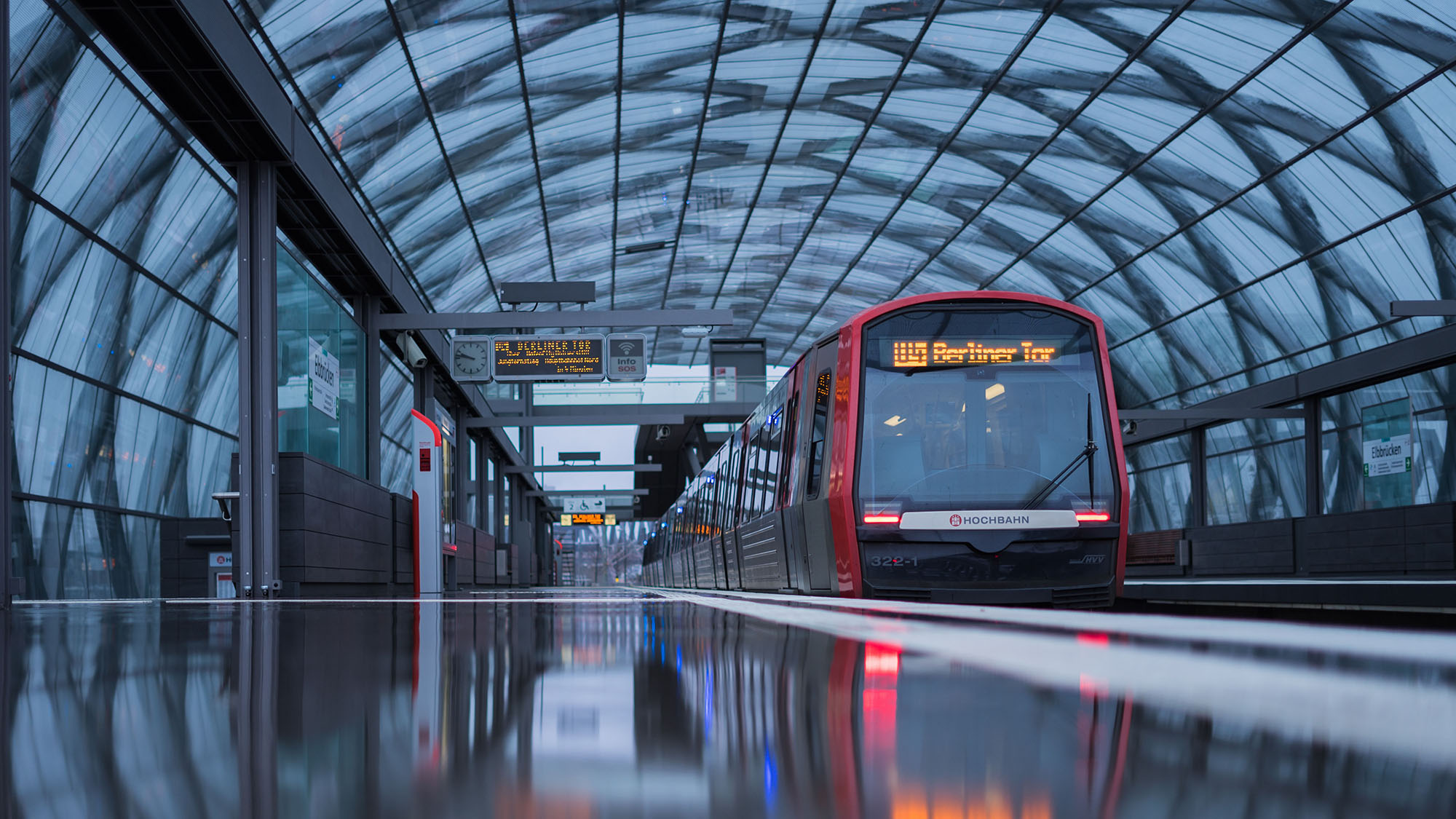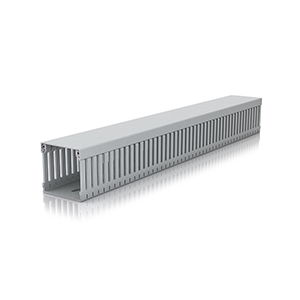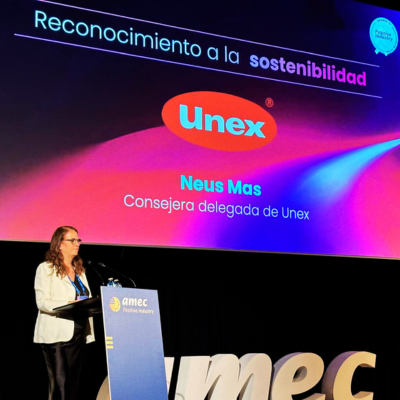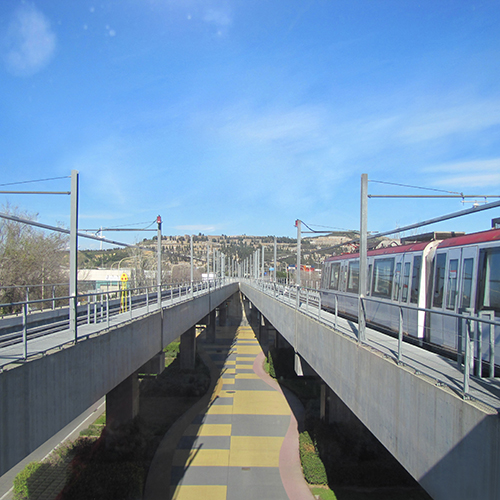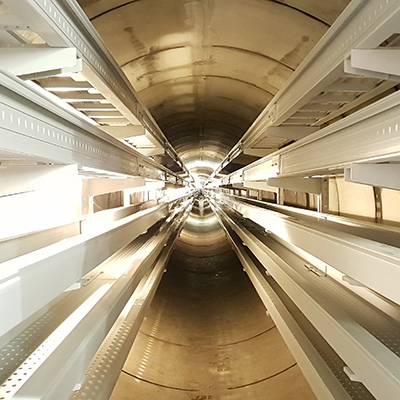The impact of transport on the environment, especially road travel, is enormous. Transport accounts for at least 30% of CO2 emissions in the EU, 72% of which are attributable to road transportation. On the other, hand rail transport only accounts for 0.5%.
These data place sustainable transport as a key goal in the race against climate change. Sustainable transport strategies are based on promoting public transport and research into alternative models which contribute towards mitigating environmental impact.
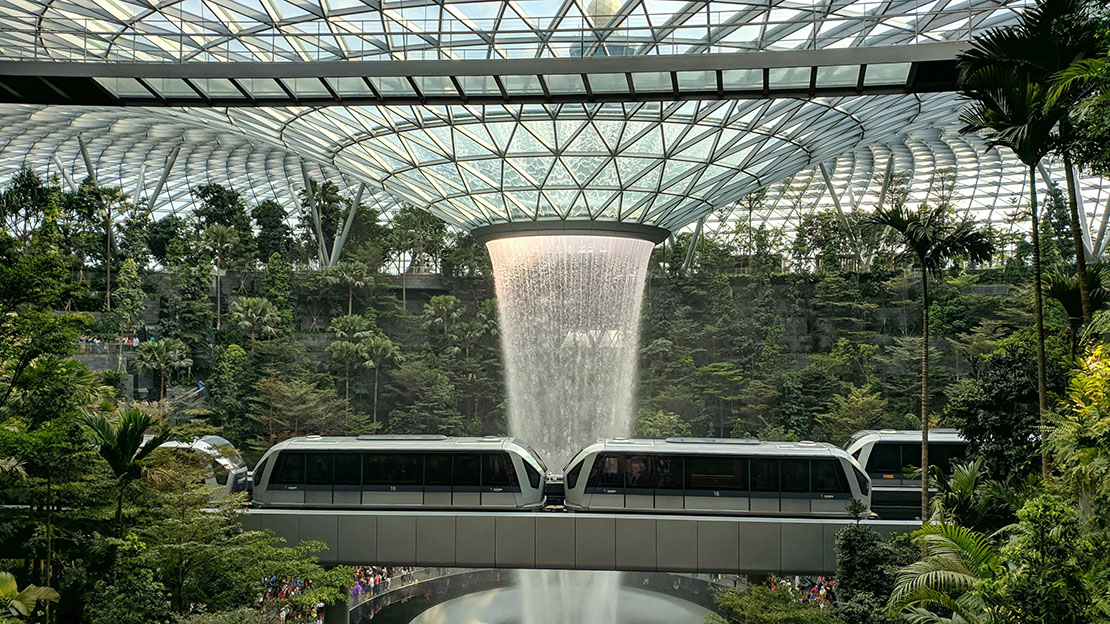
Rail transport: key to reducing emissions
Compared to other means of transport, taking the train is the most environmentally respectful way to travel, as is demonstrated by the following benefits:
- Less CO2 per kilometre
Trains emit between 3 and 5 times less CO2 than road transportation, and between 7 and 10 times less than air transport. This makes it the means of transport which has the least environmental impact per kilogram transported, allowing an important saving on CO2 emissions into the atmosphere. - Produces less pollution and traffic congestion in urban areas
Rail transport causes less pollution and congestion on urban areas. A railway line can handle a far greater capacity than car or bus and has considerably less environmental impact. Furthermore, the space occupied by rail lines is much less than that occupied by roads.
- Uses less and more efficient energy
A two-way railway line can transport as many passengers per hour as a six-lane motorway; this results in a more efficient use of passenger space and a more efficient energy-use than other means of transport.
- Uses renewable energy
Rail transports’ lack of reliance on oil (as opposed to air, road and maritime transport) means that rail transport can use renewable energy sources; substantially reducing CO2 emissions.
The challenge of rail transport for a more sustainable society.
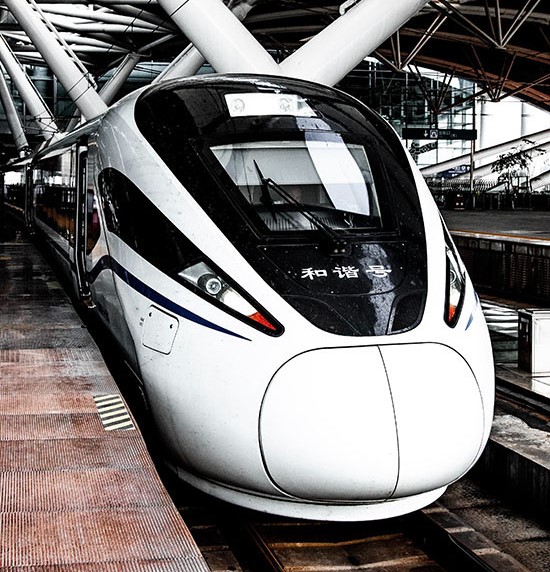
In spite of being top of the list in sustainable transport, rail transport faces some important challenges.
One of the most important of these is the implementation of highly efficient energy systems and intelligent mobility in rail networks.
An example of this is the regenerative braking system which allows the engine to recover the kinetic energy produced during braking and turn it back into electric energy. This cutting edge technology means a high-speed train returns between 6 and 10% of the energy consumed to the grid, increasing to 40% in commuter train networks.
An increase in security and passenger welfare is another vital consideration which the rail sector must confront in order to become a viable contributor to the future of sustainable transport.
These challenges cannot be met without products with superior technical specifications which guarantee the strict accomplishment of product and application standards.
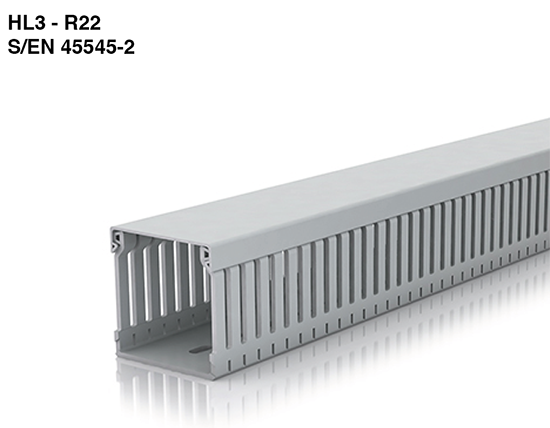
The quality of Unex cable conduction and protection systems is guaranteed by obtaining the most prestigious quality marks and approvals.
Unex is the first manufacturer to comply with the European Standard for rolling stock EN 45545-2 HL3 R22, applicable since 2013. The objectives of EN 45545 are to minimize the probability of a fire starting, to control the rate and extent of fire development and through this, to minimize the impact of the products of fire on passengers and staff.
As well as this, our 50 years of experience in the electrical sector and our presence in international regulatory committees has allowed us to discover and become familiar with the market needs and adapt to its requirements. As a result, Unex formulates its own raw materials in order to improve technical specifications and to ensure compliance with RoHS directive.
Sustainable Urban Mobility Journey 2019
Mobility/Transport is key in the journey towards sustainability and the struggle against climate change. It is for this reason that the Sustainable Transport Committee (STC) of UNIFE (representing the European Rail Industry: manufacturers of rolling stock, systems integration, equipment manufacturers etc) was convened on the 26th of September in Barcelona to celebrate the Sustainable Urban Mobility Journey 2019, organized by Unex and
The objective of the meeting was to encourage multi-directional dialogue on the future of mobility and the crucial role rail transport has to play in the future of sustainable transport, both urban and regional mobility as well as mid and long distance transport of passengers and freight.
Within this framework, we were delighted to welcome TMB (transports metropolitans de barcelona) as a contributor, in order to present the
Worries about the future and the climate crisis are real and the transport sector has a major responsibility, given the carbon emissions it releases year after year. The rail industry must take a leading role in the efforts to propose a new transport model with a reduced environmental impact in the urban ambit. In order to achieve this we need to involve all the members of the ecosystem, without forgetting the most important member: the user.
On the Unex blog, we cover a wide range of topics of interest and share experiences from our clients. We remind you that all legal information and information regarding compliance with applicable regulations can be found on our official website. We invite you to consult it for a more comprehensive and accurate understanding.
